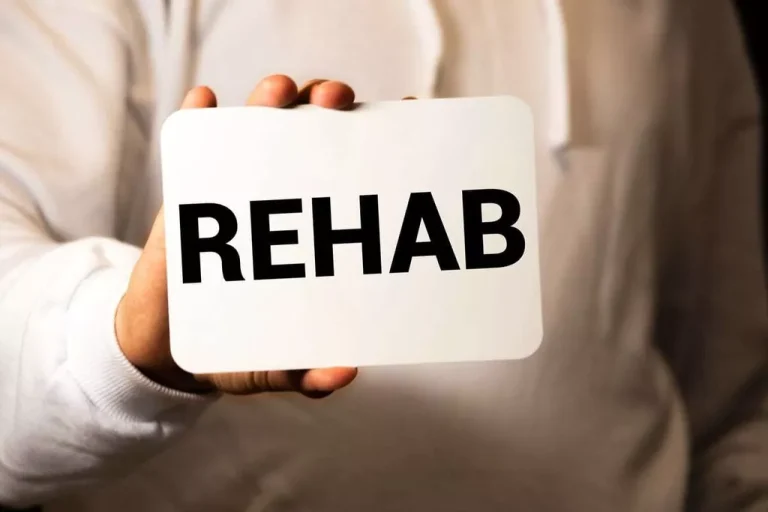
Recovery should also include the spouse, kids, or any other family member affected by alcohol abuse. Everyone deserves to feel safe, supported, and respected—not just the person working through recovery. If you are drinking so much that you black out, you have at least three problems.

WHAT IS ALCOHOLIC RAGE SYNDROME

People who are more focused on the present than the future are more likely to become angry and aggressive under the influence of alcohol, for example, Science Daily publishes. There may be various reasons why your partner becomes angry when they drink. Alcohol can diminish inhibitions and escalate aggression in specific individuals, resulting in bursts of anger, also known as alcoholic rage syndrome. While not a medically recognised condition, alcoholic rage syndrome can be a consequence of alcohol’s impact on our bodies.
What are the risk factors for developing intermittent explosive disorder?
For instance, more respondents reported feeling aggressive when drinking spirits than when drinking wine. Are aggressive people more likely to drink or does drinking make people more aggressive? Are there certain genetic factors that predict whether someone will be an angry drunk? When we look at some of the science concerning how alcohol affects the brain, we see that the angry drunk may be a combination of several factors. Drinking cocktails that include energy drinks should be considered a possible factor for aggressive behavior as well.
- You may be wondering what you can do when someone shows signs of rage after consuming too much alcohol.
- These alcoholic rage symptoms cause people to become violent and aggressive, even when the outlet is someone they seem to love or care about.
- It may be caused by the living environment and learned behaviors, genetics, or differences in the brain.
- Examples of such programs include local support groups and educational sessions.
- Let’s delve into the relationship between alcohol and anger, and explore ways alcohol-related rage can be prevented.
Why Do I Get Angry When I Drink?
When alcohol suppresses these regulatory functions, it can affect how you express your thoughts and emotions, including anger. Disinhibition can make you unable to suppress or change an act of aggression that is not appropriate for the situation you’re in. Because you are a trusted loved one, the addict knows that you will not hurt them in their pain-fueled rage. When combined with other evidence-based therapies, such as cognitive behavioral therapy (CBT), MAT can help prevent relapse and increase your chance of recovery.

When we aren’t concerned about consequences we may be more likely to act out in the moment. Our residents have found relief by addressing the root causes of alcoholic rage syndrome and seeking appropriate treatment. When under the influence of alcohol, individuals may find it harder to restrain their emotions, leading to anger outbursts. Additionally, alcohol can exaggerate underlying emotional issues or frustrations, bringing them to the surface in an uncontrolled way.

Why Do People Get Angry When Drunk: Understanding Alcohol-Induced Aggression
A “crazy drunk person” is one who drinks excessively and frequently due to alcoholism. Because they’re naturally predisposed to be angry when they drink, this becomes a key part of their personality because they can’t control their drinking or their temper. Selecting the best care involves considering your personal needs, circumstances, and preferences. It’s essential to commit to a sobriety plan and alcohol abuse intervention to help prevent relapse and manage anger effectively. It’s essential to commit to a sobriety plan and alcohol abuse intervention to help https://ecosoberhouse.com/ prevent relapse and manage anger effectively.
These issues can then lead to more anger and further difficulty controlling emotions and outbursts. It can be harder for someone under the influence of alcohol to notice typical warning signs that emotions, especially anger, may be getting out of control. The alcoholic may not have had any normal life experience with failure and success, which in turn would make them stronger and wiser.
- Excessive alcohol consumption can impair judgement and lower inhibitions, increasing the likelihood of aggressive behaviour.
- Yes, some people might have underlying psychological issues like stress or anxiety that become more pronounced when they drink.
- Having someone close to you, whether it is a friend, a romantic partner, a family member, or even a parent who struggles with addiction, is challenging.
- Instead, each participant randomly lost the game about half the time and was led to believe another person was delivering shocks to them during each loss.
- Additionally, alcohol can exaggerate underlying emotional issues or frustrations, bringing them to the surface in an uncontrolled way.
- It is essential to approach the matter with compassion and empathy, recognising that addiction is a complicated issue that can present challenges.
- Since these providers may collect personal data like your IP address we allow you to block them here.
- Additionally, alcohol consumption can cause a decrease in serotonin levels, further reducing one’s ability to regulate emotions.
In high-stress situations, it’s essential to stay calm and take a step back to assess your emotions objectively. In many cases, the person experiencing alcoholic rage may not even realize the extent of the damage they are causing until it’s too late. As the prefrontal cortex gets impaired, making rational Sober living house decisions becomes difficult, leading to the destruction of relationships. We understand the challenges you or a loved one might face in dealing with these consequences. There are several issues relevant to the effects of trauma on a child in these types of households.
Alcohol and Violence
In many cases, the person experiencing alcoholic rage may not even realize the extent of the damage they are causing until it’s too late. When dealing with alcoholic rage syndrome, it’s crucial to recognize the signs and seek help for yourself or your loved one. You alcoholic rage syndrome don’t need to navigate this difficult journey alone – compassionate support is available.